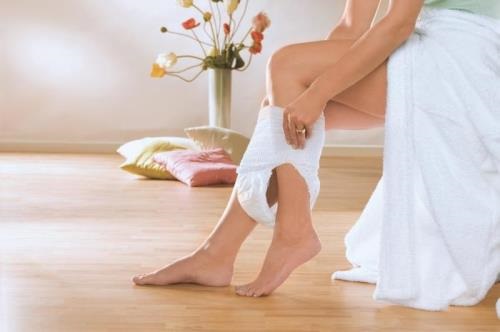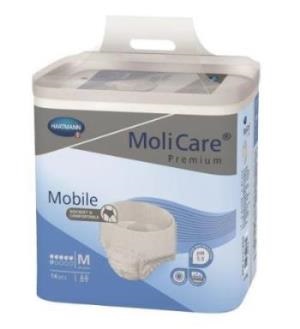Despite the many people it affects, incontinence remains a delicate topic. We talk with an expert who wants to bring the issue out into the open.
One particular condition affecting more and more people but rarely spoken about is incontinence. The German Continence Society estimates that around nine million Germans struggle with issues of bladder control. That number, however, could be even higher, because people suffering from bladder weakness often feel ashamed and won’t speak openly about it. But this does not have to be the case, because there are experts who can help sufferers in dealing with incontinence. We spoke to one such expert.
How long have you been with HARTMANN?
Let me think. It should be 18 years now, so I'm coming up to an anniversary soon! And I've been dealing with this topic for some time now.
Tell us, how exactly did it all get started? How did you become an expert in incontinence?
In fact, it all started in Japan. The Japanese have developed many highly innovative incontinence products over the years. Not surprising when you think about it, because the proportion of older people in Japan is higher than in any other country in the world. In 2014, more adult diapers were sold in Japan than baby diapers. But even here in Germany the number of those affected is rising. That’s why in 2000, I moved from Japan to the HARTMANN production facilities in Germany.

So is incontinence an age-related issue?
Not really. Of course, age plays a role. For example, people who suffer from dementia can simply forget to go to the toilet. But in principle, incontinence can have many different causes and affect people of varying ages. After all, we are dealing with a complex system made up of bladder muscles, sphincters and pelvic floor muscles steered by the nervous system. Due to changes like surgery, obesity or as a side effect of some medication, the system can lose its fine adjustment. Just coughing, sneezing or even laughing can often be enough to cause involuntary urine leakage. These are exactly the situations where I can help as an expert.
Are there other causes?
Yes, there are. Women often develop stress incontinence towards the end of pregnancy and after giving birth. And the hormonal change during menopause can also lead to a collapse of the pelvic floor.
Does that mean that men are less affected by incontinence?
Yes and no. Generally, you could say that's true, but it certainly doesn't mean that men are not affected at all. I also help men if they have problems with their prostate, for example. But also being overweight, a chronic cough, frequent heavy lifting and too little exercise are risk factors that affect men just as much as women.

You mentioned stress incontinence. Do you have experience with other types of incontinence?
In my daily work, I deal with five types of incontinence. One is urge incontinence where the signal transmission between the bladder and the nervous system is defective. This type of incontinence can be caused by neurological diseases, bladder stones or even diabetes. But if the nerves of the bladder are directly affected by the disorder, we refer to this as reflex incontinence. This type is seen in people with dementia or with people who have had a stroke. Then there is overflow incontinence. In this case, the urinary outlet is physically blocked, for example, by an enlarged prostate. And finally, we speak of extra-urethral incontinence when the defect is congenital.
How closely do you work with your customers?
In a sense, I work very closely with my customers. Their needs differ greatly depending on the type and severity of the incontinence. I have to adapt my approach to meet these needs, otherwise I can not help my customers to manage their life as they want despite their incontinence.
So reliability is essential for you to perform your job?
Not just reliability. I need to be flexible so I can offer them the best possible support – and do so as discreetly as possible. In the best-case scenario, I am an invisible helper.

As an expert, you speak very openly about the issue of incontinence.
It would help a great deal if everyone did. Despite the many people it affects, incontinence is still a delicate subject that people make jokes about rather than discuss freely. I believe that we experts have to get the ball rolling and not just leave it up to those affected to keep the issue front and centre. Perhaps with a light touch but always with the necessary respect. Then we can hopefully talk about incontinence the same way as we do about high blood pressure. In any case, I would like to help those affected to feel less insecure and lead as normal a life as possible.
So you see yourself as having a special responsibility when it comes to incontinence?
Absolutely! And I, the MoliCare Premium Mobile, along with all the other billions of incontinence products manufactured by HARTMANN each year can make a big difference in the lives of those affected.
About HARTMANN's 200-year anniversary
In 2018, HARTMANN is celebrating its 200-year anniversary. We are now counting down to our anniversary celebration in June 2018 through a series of articles that show how our employees and partners contribute to advancing healthcare, as well as discussing trends and issues that affect the healthcare systems we serve.
